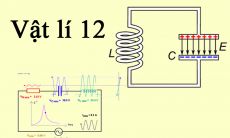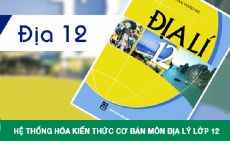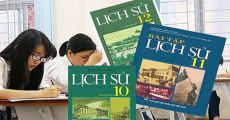Đề thi thử tốt nghiệp THPT QG môn Tiếng Anh năm 2020
Đề tuyển chọn số 12
-
Mark the letter A, B, C, or D on your answer sheet to indicate the word whose underlined part differs from the other three in pronunciation in each of the following questions.
Câu 1:
A. days
B. speaks
C. learns
D. arrives
-
Câu 2:
Choose the word that has different pronunciation: strength, event, athlete, wrestling.
A. strength
B. event
C. athlete
D. wrestling
-
Mark the letter A, B, C, or D on your answer sheet to indicate the word that differs from the other three in the position of primary stress in each of the following questions.
Câu 3:
A. reserve
B. leopard
C. wildlife
D. beauty
-
Câu 4:
Choose the word that has different primary stress: comfortable, excellent, attractive, confident.
A. comfortable
B. excellent
C. attractive
D. confident
-
Mark the letter A, B, C, or D on your answer sheet to indicate the correct answer to each of the following questions.
Câu 5:
A. don't you
B. aren't you
C. are you
D. are not you
-
Câu 6:
This is ___________ first time I have ever eaten this food.
A. a
B. the
C. an
D. no article
-
Câu 7:
Don't you think you should apply for the job _____ writing?
A. with
B. for
C. at
D. in
-
Câu 8:
Every day I spend two hours ___________ English.
A. practise
B. to practise
C. practising
D. practiced
-
Câu 9:
If you_______ for the car, we’d be able to sell it.
A. look
B. looks
C. looked
D. had looked
-
Câu 10:
She has not written to me since we _____________ last time.
A. met
B. to meet
C. will meet
D. was meeting
-
Câu 11:
True Blood is my favourite TV series, ________ I don't have much time to watch it often.
A. although
B. before
C. because
D. yet
-
Câu 12:
He will take the dog out for a walk ________________.
A. as soon as he finishes
B. when I was finishing dinner
C. until I finished dinner
D. shall have finished
-
Câu 13:
My favourite hobby is watching the work ____________ by ShakeSpeare in the 20 century.
A. written
B. is writing
C. writes
D. is written
-
Câu 14:
My sister is a woman of____age.
A. marriage
B. married
C. marrying
D. marriageable
-
Câu 15:
Those flowers are___________everywhere is a sign of spring.
A. going over
B. taking over
C. coming out
D. breaking out
-
Câu 16:
You'd better _____________ a commitment to being a volunteer on a regular basis.
A. promise
B. do
C. make
D. pull
-
Câu 17:
People thought that maybe his novel might one day be turned into a film and become a Hollywood _________________.
A. best-seller
B. attraction
C. blockbuster
D. debut
-
Câu 18:
People have used coal and oil to ___________electricity for a long time.
A. bred
B. raise
C. cultivate
D. generate
-
Câu 19:
My mother doesn't______________________ eye to eye with my father sometimes.
A. see
B. glance
C. look
D. agree
-
Mark the letter A, B, C, or D on your answer sheet to indicate the word(s) CLOSEST in meaning to the underlined word (s) in each of the following questions.
Câu 20:
A. presentable
B. rewarding
C. attractive
D. limited
-
Câu 21:
The repeated commercials on TV distract many viewers from watching their favourite films. (underlined words CLOSET in meaning with)
A. advertisements
B. contests
C. businesses
D. economics
-
Mark the letter A, B, C, or D on your answer sheet to indicate the word(s) OPPOSITE in meaning to the underlined word(s) in each of the following questions.
Câu 22:
His boss has had enough of his impudence, and doesn't want to hire him any more.
A. respect
B. agreement
C. obedience
D. rudeness
-
Câu 23:
She was like a cat on hot bricks before her driving test. (underlined words OPPOSITE in meaning with)
A. nervous
B. comfortable
C. depressed
D. relaxing
-
Mark the letter A, B, C, or D on your answer sheet to indicate the sentence that best completes each of the following exchanges.
Câu 24:
Jane is talking to Billy about the meeting.
- Jane: “Is everybody happy with the decision?”.
- Billy: “______”.
A. That sounds like fun.
B. Yes, it is certainly.
C. No, have you?
D. Not really.
-
Câu 25:
Lucy is asking for permission to play the guitar at Pete's home.
- Lucy: “Is it all right if I play the guitar in here while you're studying?”.
- Pete: “______”.
A. Oh, I wish you wouldn't.
B. Well, I'd rather not.
C. Well, actually, I'd prefer it if you didn't.
D. Well, if only you didn't.
-
Read the following passage and mark the letter A, B, C, or D on your answer sheet to indicate the correct word or phrase that best fits each of the numbered blanks from 26 to 30.
Coincident with concerns about the accelerating loss of species and habitats has been a growing appreciation of the importance of biological diversity, the (26)_________ of species in a particular ecosystem, to the health of the Earth and human well-being. Much has been written about the diversity of terrestrial organisms, particularly the exceptionally rich life associated tropical rainforest habitats. Relatively little has been said, (27) _________, about diversity of life in the sea even though coral reef systems are comparable to rain forests in terms of richness of life.
An alien exploring Earth would probably (28) ______ priority to the planet's dominants - most distinctive feature - the ocean. Humans have a bias toward land (29) _____ sometimes gets in the way of truly examining global issues. Seen from far away, it is easy to realize that landmasses occupy only one-third of the Earth's surface. Given that two thirds of the Earth's surface is water and that marine life lives at all levels of the ocean, the total three-dimensional living space of the ocean is perhaps 100 times (30) _____ than that of land and contains more than 90 percent of all life on Earth even though the ocean has fewer distinct species.
Câu 26:
(26) ______
A. number
B. each
C. amount
D. few
-
Câu 27:
(27) ______
A. therefore
B. thus
C. however
D. instead
-
Câu 28:
(28) ______
A. make
B. have
C. give
D. bring
-
Câu 29:
(29) ______
A. who
B. when
C. that
D. whose
-
Câu 30:
(30) ______
A. higher
B. bigger
C. greater
D. larger
-
Read the following passage and mark the letter A, B, C, or D on your answer sheet to indicate the correct answer to each of the questions from 36 to 42.
History books recorded that the first film with sound was The Jazz Singer in 1927. But sound films, or talkies, did not suddenly appear after years of silent screenings. From the earliest public performances in 1896, films were accompanied by music and sound effects. These were produced by a single pianist, a small band, or a full-scale orchestra; large movie theatres could buy sound-effect machines. Research into sound that was reproduced at exactly at the same time as the pictures - called "synchronized sound" – began soon after the very first films were shown. With synchronized sound, characters on the movie screen could sing and speak. As early as 1896, the newly invented gramophone, which played a large disc carrying music and dialogue, was used as a sound system. The biggest disadvantage was that the sound and pictures could become unsynchronized if, for example, the gramophone needle jumped or if the speed of the projector changed. This system was only effective for a single song or dialogue sequence.
In the "sound-on-film" system, sound was recorded as a series of marks on celluloid which could be read by an optical sensor. These signals would be placed on the film alongside the image, guaranteeing synchronization. Short feature films were produced in this way as early as 1922. This system eventually brought us "talking pictures".
Câu 31:
The passage is mainly about the_____________.
A. research into sound reproduction.
B. development of sound with movies.
C. disadvantages of synchronized sound.
D. history of silent movies.
-
Câu 32:
According to the passage, films using sound effects were screened ________.
A. as early as 1922
B. in 1927
C. before 1896
D. as early as 1896
-
Câu 33:
The word "screenings" is closest in meaning to "______________".
A. projections
B. revelations
C. demonstrations
D. diversions
-
Câu 34:
Which of the following is not mentioned as a producer of sound to accompany movies?
A. a Jazz Singer
B. a single pianist
C. a gramophone
D. a small band
-
Câu 35:
The phrase "these signals" refers to______________.
A. sounds
B. marks
C. series
D. sensors
-
Read the following passage and mark the letter A, B, C, or D on your answer sheet to indicate the correct answer to each of the questions from 36 to 42.
There are three basic types of classroom learning styles: visual, auditory, and kinesthetic. These learning styles describe the most common ways that people learn. Individuals tend to instinctively prefer one style over the others; thus each person has a learning style that is dominant even though he or she may also rely somewhat on the other approaches at different times and in different circumstances.
Visual learners prefer to sit somewhere in the classroom where no obstructions hinder their view of the lesson. They rely on the teacher's facial expressions and body language to aid their learning. They learn best from a blend of visual displays and presentations such as colorful videos, diagrams, and flip-charts. Often, these learners think in pictures and may even close their eyes to visualize or remember something. When they are bored, they look around for something to watch. Many visual learners lack confidence in their auditory memory skills and so may take detailed notes during classroom discussions and lectures. Auditory learners sit where they can hear well. They enjoy listening and talking, so discussions and verbal lectures stimulate them. Listening to what others have to say and then talking the subject through helps them process new information. These learners may be heard reading to themselves out loud because they can absorb written information better in this way. Sounding out spelling words, reciting mathematical theories, or talking their way across a map are examples of the types of activities that improve their understanding.
Kinesthetic learners may find it difficult to sit still in a conventional classroom. They need to be physically active and take frequent breaks. When they are bored, they fidget in their seats. They prefer to sit someplace where there is room to move about. They benefit from manipulating materials and learn best when classroom subjects such as math, science, and reading are processed through hands-on experiences. Incorporating arts-and-crafts activities, building projects, and sports into lessons helps kinesthetic learners process new information. Physical expressions of encouragement, such as a pat on the back, are often appreciated.
In addition to these traditional ways of describing learning styles, educators have identified other ways some students prefer to learn. Verbal learners, for example, enjoy using words, both written and spoken. Logical learners are strong in the areas of logic and reasoning, Social learners do best when working in groups, whereas solitary learners prefer to work alone. Research shows that each of these learning styles, as well as the visual, auditory, and kinesthetic styles, uses different parts of the brain. Students may prefer to focus on just one style, but practicing other styles involves more of the brain's potential and therefore helps students remember more of what they learn.
Câu 36:
What topic does the passage mainly discuss?
A. Fundamental kinds of learning approaches
B. Different classrooms for different learner groups
C. The most common way to learn
D. Basic classrooms for individuals
-
Câu 37:
The word “dominant” in the first paragraph is closest in meaning to ______.
A. successful
B. foremost
C. familiar
D. distinctive
-
Câu 38:
According to the second paragraph, visual learners ______.
A. have a preference for sitting at the backs of the classrooms.
B. must keep an eye on the pictures to memorize the content of the lessons.
C. are easy to get fed up with the lessons.
D. are not confident in remembering what they have listened.
-
Câu 39:
The word “blend” in paragraph 2 could be best replaced by ______.
A. division
B. list
C. mixture
D. separation
-
Câu 40:
What does the word "them" in paragraph 3 refer to?
A. auditory learners
B. discussions
C. verbal lectures
D. others
-
Câu 41:
Which of the following is NOT true about auditory learners?
A. They get information and the content of the lecturers aurally and orally.
B. Reciting the lessons aloud is an effective way to understand the subjects.
C. They always fidget when they are indifferent to the lectures.
D. They merely learn well when they are able to listen to the lessons clearly.
-
Câu 42:
The following are suggested methods to attract kinesthetic learners, EXCEPT ______.
A. merging arts-and-crafts activities
B. integrating projects and sports into the lessons
C. stimulating them by physical expressions
D. isolating them in a customary classroom
-
Mark the letter A, B, C, or D on your answer sheet to indicate the underlined part that needs correction in each of the following questions.
Câu 43:
The world is becoming more industrialized and the number of animal species that have becoming extinct have increased.
A. industrialized
B. species
C. extinct
D. have
-
Câu 44:
Dams are used to control flooding, provide water for irrigation, and generating electricity for the surrounding area. (underlined part that needs correction)
A. to control flooding
B. irrigation
C. generating
D. surrounding area
-
Câu 45:
It is an interested book which I bought at Ngoc Binh Store last Sunday. (underlined part that needs correction)
A. interested
B. which
C. at
D. last Sunday
-
Mark the letter A, B, C, or D on your answer sheet to indicate the sentence that is closest in meaning to each of the following questions.
Câu 46:
A. My mother is not as friendly as my father.
B. My mother is less friendly than my father.
C. My father is more friendly than my mother.
D. My father is not as friendly as my mother
-
Câu 47:
“I bought these books last week”. He said
A. He said he bought these books last week.
B. He said he had bought those books the week before.
C. He said he had bought these books last week
D. He said he bought these books the week before.
-
Câu 48:
She probably buys this house next week.
A. She may buy this house next week
B. She must buy this house nexk week
C. She should buy next house next week.
D. She doesn’t have to buy this house next week.
-
Mark the letter A, B, C, or D on your answer sheet to indicate the sentence that is combines each pair of sentences in the following questions.
Câu 49:
A. Whether you pay the bills or stay in the flat, it is free.
B. Without the bills paid, you can stay in the free flat.
C. Unless the flat is free of bills, you cannot stay in it.
D. Provided you pay the bills, you can stay in the flat for free.
-
Câu 50:
It is such an interesting book. I have read it three times
A. Such was the interesting book that I have read it three times.
B. Should the book be interesting, I have read it three times.
C. Such interesting was book that I have read it three times.
D. Only if it is an interesting book have I read it three times.














